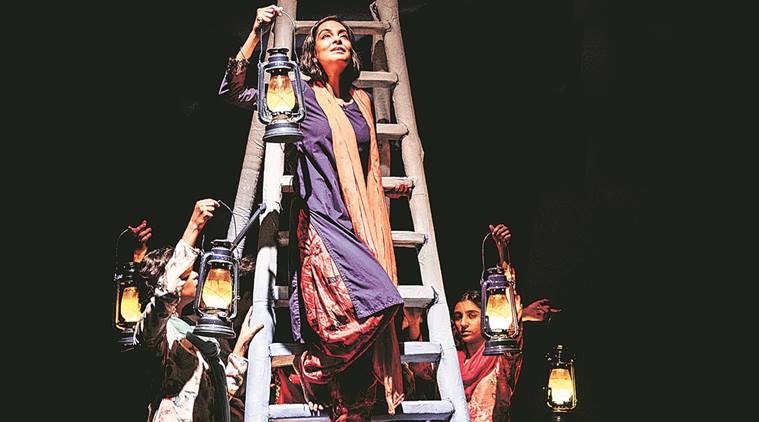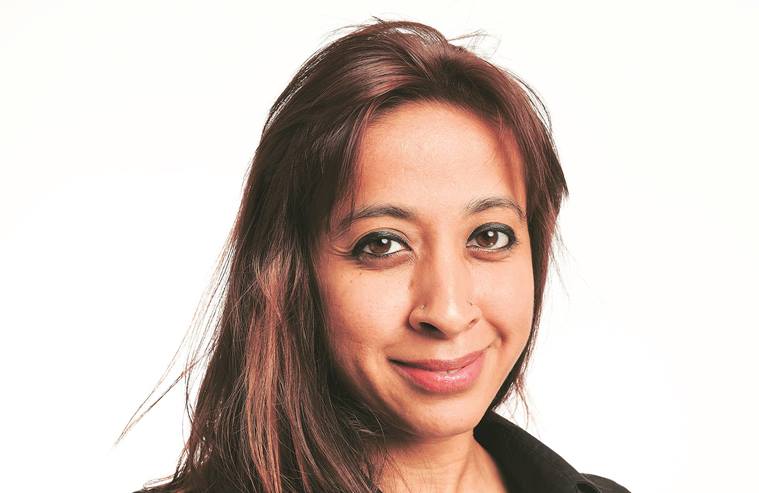Sky is the Limit
Actor-director Yuki Ellias on her latest play and how curiosity about outer space makes a group of women in rural Haryana find its voice

A still from Hello Farmaaish
Hello Farmaaish, the new play written and directed by Mumbai-based Yuki Ellias, captures the excitement in a remote Haryana village over Kalpana Chawla’s 2003 voyage on Space Shuttle Colombia and how it inspires a group of women working for an NGO. They find the reportage on a community radio boring and take over radio frequencies from the local RJ. This sets them off on a journey to find out more about outer space and the wonders of the cosmos. Although the audience’s response to their show is encouraging, not everyone is pleased. Excerpts from an interview with Ellias:
One of your previously directed plays, Charge, also dealt with science. Are you drawn to science-related subjects?
Charge was a play about human beings in the age of virtual reality. I enjoyed the mindspace of the characters, the way they surrender to a system and the consequences this has on the human spirit. Hello Farmaaish explores the reality of a group of women who uses their imagination to exit their immediate reality and enter another world. I guess virtual reality and dreaming have a lot in common.
The science in Hello Farmaaish is more of a conduit for their imagination. It becomes a series of metaphors for them to discover their own voice and their interpretation of outer space, which in the end reflects their innermost thoughts about themselves and their lives.
How did this play come about?
Pruthu Parab, the composer of Hello Farmaaish, showed me an article about women-led community radio stations in rural India. I thought it would be a great premise for a story. During a bike ride, sporting my helmet and over-padded jacket, I thought of astronauts, space and radio waves. I thought it would be great if we could create a tale of people on the ground obsessed with space and how they use radio airwaves to take off on a space odyssey. I started researching community radio stations in Haryana, where Kalpana Chawla was born. I took my co-writer Sneh Sapru to Haryana to research the stories from community radio stations and interacted with women radio jockeys. We also spoke to the listeners of rural radio. This gave us a rich landscape to write our play. Later, Vidit Tripathi, who has done the Hindi adaptation, joined us as the third writer.
When you are directing, do you prefer not to act?
I find that both creating stories and directing require me to draw from my sensory and physical abilities to embody characters and scenes. So, even when I’m in a rehearsal room working with actors, I believe, I’m deeply engaged as a performer and storyteller. I don’t miss the stage when I’m directing. I’m fully invested in the story and really love collaborating with actors. So, if I’m at the tech box during the show I’m very connected to the actors and their performances on stage.
What made you cast Puja Sarup, co-founder of the theatre group Patchwork Ensemble, as Gyaani Geeta?
I’ve known Puja since college. We have grown from performing together to each of us going to study similar processes in theatre, to growing into directors who also like to create original scripts. I admire her as an actor and a director. After we finished our research in Haryana, I asked Puja if she would be interested in this story even though we hadn’t started writing yet. I was thrilled when Puja said yes. She brought a lot to the story during rehearsals.
Why did you keep science so elementary in the play?
When we went to Haryana, we found the education level was staggeringly low in rural areas. There were no bookshops and not many women were educated. The knowledge of science, therefore, had to be elementary. That apart, do urban people really understand what a black hole is? How much do we really know about the Big Bang? The joy of writing this story was in how can we make the seemingly elementary science relevant to ourselves. When they talk about telescopes, the women also talk about the lens with which human beings can see their own world and hear their own choices. When they talk about the North Star, they discuss that when one is lost in life, the heart is like the North Star guiding them.
The play makes a statement about women following their dreams, expressing their desires even when certain forces try to shut them up.
Freedom of expression is something we have to fight for at many levels — at home, with our partners, at workspaces and others. Today, we find forces trying to shut the voices of human rights activists. In our cities, we are all reassessing the gender bias we have grown up with and challenging it. We still worry about how free we are to talk politics on social media without being targetted as an anti-national. Freedom to express another idea, a possibility of more inclusion and opportunity for all, is what we want to talk about.
Hello Farmaaish will be staged at Kamani Auditorium in Delhi on September 22 and 23






















 Yuki Ellias
Yuki Ellias
No hay comentarios:
Publicar un comentario